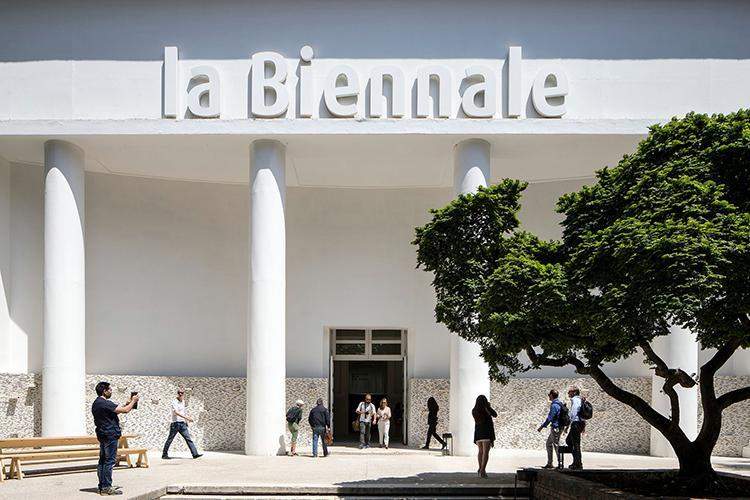Venice, Biennale suddenly imposes green pass requirement on workers
Mandatory Green Pass for workers at the Venice Biennale, communicated with two days’ notice: reporting the case is a female worker, who sent a message to the association Mi Riconosci, which works to protect cultural professionals. “I don’t know if it happened in other places too,” the anonymous worker writes, “but everyone who works in the Biennale (both employees of the foundation and in the various pavilions) was told on the evening of August 4 that a greenpass would be required to enter, starting on the 6th: it was either that, or you couldn’t work. I don’t know why they didn’t decide and communicate this earlier, since it is the foundation’s choice, and it had been in the air for some time.”
The point is that, according to the worker’s statements, there are about two hundred people, including employees and outside workers, who still do not have Green Passes, and this is mainly because of the now well-known delays in reservations. In short, these are workers who turn out to be vaccinated not by choice, the worker is keen to point out, but because of bureaucratic delays: “I had my first dose in the last days of July,” explains the woman who reported the case. “A very young boy has his first dose in a few days, he would have to spend a month like that, back and forth, to be able to work.” If Green Pass must be mandatory, the worker says, the foundation could at least set up a swab point on site dedicated to staff, somewhat like the Pompeii Archaeological Park has done, which has equipped itself to be able to test visitors without a green certificate. At the moment, again according to the report, the only possibility is offered by the Red Cross testing, which, however, the worker explains, “only comes on certain days and times, and so we are all and all forced to waste time either inside working hours or outside working hours, unpaid, even on days off. This is for those who are employees of the foundation, but for those who work for others, if the employer does not guarantee, the buffer is at their own expense. Penalty, in fact, is loss of job.”
The question is, can the Venice Biennale decide to impose a mandatory Green Pass? The answer is affirmative and must be sought between the folds of the law: article 2087 of the Civil Code states that “The entrepreneur is obliged to adopt in the exercise of the enterprise the measures that, according to the particularity of the work, experience and technique, are necessary to protect the physical integrity and moral personality of the workers.” This article, combined with occupational safety regulations (Legislative Decree no. 81/2008, particularly in Article 279 where it is specified that the employer, “on the advice of the competent physician, shall take special protective measures for those workers for whom, including for individual health reasons, special protective measures are required, including a) the provision of effective vaccines for those workers who are not already immune to the biological agent present in the work, to be administered by the competent doctor, b) the temporary removal of the worker in accordance with the procedures of Article 42”), may lead the employer, upon the opinion of a competent doctor, to consider the task of his workers as characterized by risks for which the protection of the physical integrity of the workers themselves is necessary, and therefore has the power to arrange special measures including, precisely, access to the workplace upon the exhibition of the Green Pass. What the employer cannot do, as established by the Privacy Guarantor, is to ask employees to provide information on their vaccination status or copies of documents proving that they have been vaccinated against Covid. The Green Pass requirement can be decided by the employer even without a law imposing the requirement in the workplace: some courts have already ruled on the issue.
In Venice, in essence, there is an argument not over whether the Biennale could not impose the Green Pass obligation, but over the manner in which it was imposed, which came overnight and without discussion with the workers. It is after all the situation feared by the unions: the obligation overnight without dialogue. A dialogue that, according to the workers, would at least have made it easier for employees and outsiders to comply with the obligation. The Venice Biennale Foundation, contacted by the editors of Finestre sull’Arte, did not respond to our request for comment.
 |
| Venice, Biennale suddenly imposes green pass requirement on workers |
Warning: the translation into English of the original Italian article was created using automatic tools. We undertake to review all articles, but we do not guarantee the total absence of inaccuracies in the translation due to the program. You can find the original by clicking on the ITA button. If you find any mistake,please contact us.





























